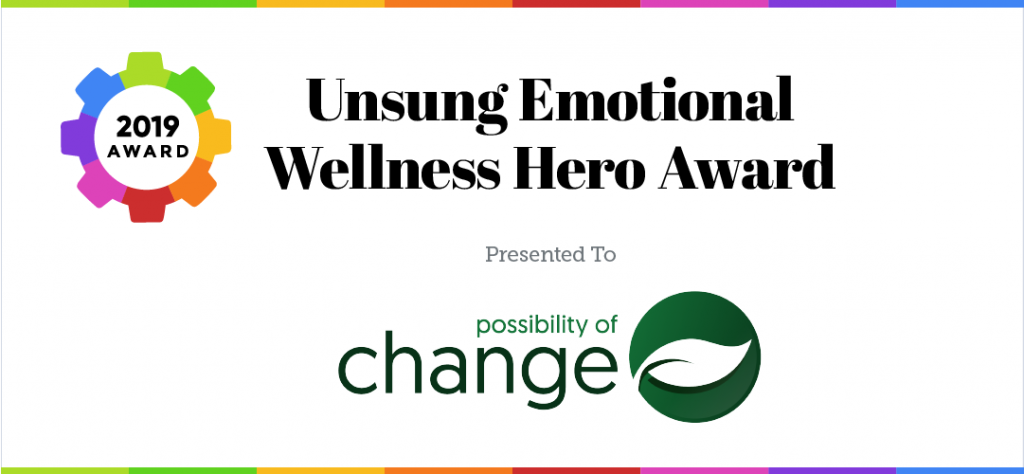
Emotional wellness matters to us all. It can shape the way we think, feel, and function in everyday life, but that’s not all. People who maintain a positive attitude and outlook are less prone to physical illness. And those who do get sick tend to recover much faster when they’re in tune with their emotional side. Mental health also influences physical wellbeing and vice versa [1], [2].
This article looks at the impact emotions have on humans. It shows how to identify emotional states and ways to improve and maintain a healthy mindset. It’s an easy read and void of confusing medical terminology and unnecessary jargon.
How to Identify a Healthy Mind
Today’s fast-paced, non-stop world never seems to switch off. The solution to a healthy mind is to learn how to identify and deal with environmental stressors. One must become attentive of inner thoughts, feelings, and behaviors, both positive and negative. Emotional wellness occurs when we recognize, accept, and cope with life as it happens [3].
It’s unrealistic to expect happiness all day every day because life isn’t like that. But it is possible for many people to become happier than they are, and to live a more fulfilled life. The following sections identify the signs of emotional wellness and suffering, causes, and solutions.
6 Signs of Emotional Wellbeing
Those who enjoy a balanced life are emotionally well and content for most of the time. The six points below highlight the areas of lifestyle focus that contribute to a healthy mind [4].
- Socially connected
- Physically active
- Effective coping mechanisms
- Maintain a brain-healthy diet
- Regular, quality sleep
- Have purpose and meaning in life
How many of those boxes can you check? Some people are emotionally unwell and don’t even know it. They may feel that something’s not right but do nothing to change. They don’t know what to do and thus accept their lot. It doesn’t have to be that way.
Now let’s look at the 6 points above in a little more detail.
#1 Socially connected
Social interaction is part of being human. People who maintain close relationships with others gain many benefits. Healthy human contact is good for mental and physical wellbeing and improves quality of life. Indeed, those who socialize tend to live longer than those who don’t. Connectedness also decreases the risk of dark thoughts and suicide [5], [6], [7].

#2 Physical activity
Everyone knows they should exercise, but we don’t all follow through. That’s a shame as it benefits the mind as well as the body. Physical activity doesn’t have to be complicated or painful to be valuable.
Regular walks, cycling, and dancing are all great ways to become active. Exercise reduces stress and depression, enhances mood, and improves emotional wellbeing more generally.
Physically active people also tend to enjoy a better quality of sleep than those who aren’t. And contrary to popular belief, regular exercise increases—not depletes—energy levels [8].
#3 Managing stress
Stressful situations are all around us, and there’s little we can do about that. What we can do, though, is learn to cope better. Managing stress is an essential part of emotional wellness. It causes all manner of health issues when ignored like depression, anxiety, and agitation. It’s also responsible for mood swings, anger bursts, feelings of loneliness, and chronic irritability. The list goes on.
The 3 Faces of Stress
Stressful triggers are everywhere. Sadly, too many people suffer without joining the dots. That’s why de-stressing is so vital. Below are some of the common symptoms of stress in all its forms [9]:
Emotional stress:
- Easily overwhelmed
- Restless and irritable
- Fearful or constantly anxious
- Low self-esteem
Mental stress:
- Constant worry
- Unable to concentrate for long periods
- Incapable of making decisions
Physical stress:
- Regular headaches
- Tense muscles or muscle pain
- Periodic dizzy spells
- Sleep issues
- Constantly tired
- Over -or undereating

There’s a connection between emotional, mental, and physical stress issues. They can form a never-ending loop if ignored. That’s why stress-busting is so vital to wellbeing.
Dealing With Stressful Lives
There are many ways to manage stress, but there’s no one fix for all. That’s because no two people are the same and so need different approaches. The good news is that there are plenty of options, and most of them are free to try and simple to implement. Below are a few proven methods:
- Embrace points 1,2,4 and 5 from the ‘6 signs of emotional wellbeing’ above
- Get better organized
- Take a course on mindfulness [10]
- Learn breathing techniques to de-stress [11]
- Download relaxation apps to your smartphone [12]
- Listen to meditation and anxiety-control podcasts
- Set aside some regular ‘ME’ time and stick to it
- Speak to others and share what’s going on in your life
#4 Brain-healthy diet
There are six pillars of brain health. They are physical, medicinal, sleep & relaxation, mental, social, and nutrition. There’s a lot of truth in the saying, ‘we are what we eat.’ The food we feed ourselves affects the brain as well as the body. Most of us are familiar with the 7 nourishing choices below. People who maintain a healthy eating regime get to boost brain functions on many levels [13].
- Green, leafy veggies
- Fatty, oily fish
- Raw nuts like walnuts and macadamia, etc.
- Whole grains
- Berries
- Eggs (in moderation)
- Tea & coffee (in moderation)
There are others, but adding the above food groups into regular meals is a great place to start.
#5 Quality sleep
Not all sleep is equal. It’s not a simple case of getting the hours in but the quality of that slumber. Lack of sleep—or quality sleep—has a massive impact on mood and emotional wellbeing. Anyone who falls short is not able to function well at the physical or mental levels. They are more likely to suffer from bad moods, sadness, irritability, stress, and general fatigue.
People who sleep well function better and outperform those who don’t sleep so sound. It’s possible to seek professional help for chronic or persistent problems. For many, though, better sleep hygiene is enough to transform lives for the better [14], [15].
The general principles of good sleep hygiene embrace the following:
- Avoid daytime naps or limit them to 30 minutes
- Exercise regularly but not too close to bedtime
- Get exposure to natural daylight
- Avoid food that disrupts sleep [16]
- Learn to wind down before bedtime; form a relaxing routine
- Limit screen time one hour before bedtime
- Go to sleep and wake up at the same time every day
- Create a pleasant sleep environment, e.g., dark, quiet, uncluttered
- Start a sleep diary to monitor progress
Never underestimate the importance of quality sleep. It affects every aspect of daily living, including learning, work life, relationships, and happiness. It’s as essential to emotional and physical health as food, water, and the air we breathe [17] .
#6 Purpose and meaningful lives
Every person experiences a mix of pleasant and unpleasant emotions during a lifetime. People who have a sense of belonging can cope better with adversity than those who don’t. No one has to be on top form all the time to have a fulfilling life. Positive thoughts and feelings play a major role in emotional wellbeing. The right mindset can give life more purpose and meaning [18].
Studies suggest humans continually seek fulfillment and meaning in life, sometimes subconsciously. It’s a natural and effective way to protect against emotional instability [19].
5 Signs of Emotional Suffering
There are 5 signs of emotional suffering according to the Campaign to Change Direction [20]:
- A change in personality
- Easily agitated
- Withdrawn
- Lack of self-care
- Feelings of hopelessness
Everyone experiences emotional upsets at times, at least to some degree. It’s when these feelings are chronic or long-lasting that they become problematic. The biggest concern with modern society is that too many people suffer in silence. Some can’t recognize the symptoms, and many who do refuse to seek help. This section looks at poor emotional wellness and what you can do to turn things around.
#1 Change in Personality
Personality changes can be subtle or dramatic, and sometimes gradual. Suffering in silence and hoping things will get better is an unlikely solution. Changes can occur when there’s disruption to any of the 6 signs of emotional wellbeing. There’s a lot of professional help available for those who reach out.
#2 Easily agitated
Someone who becomes easily agitated is in a bad space emotionally. To be frequently angry, moody, or anxious can also affect appetite, sleep, and decision making. Those things, in turn, exacerbate the problem and so the cycle continues.
#3 Withdrawn
A person who suddenly stops interacting with others has become withdrawn. It’s a disorder most noticeable with those who used to be socially outgoing. They can be hard to find or impossible to talk to. A withdrawn individual may not open the door, respond to emails, or answer the phone. In extreme cases of withdrawal, the person stops showing up for work or school and skips appointments.
#4 Lack of Self-Care
Physical changes manifest in several ways. The most noticeable are lifeless hair, bad nails, and irregular shaving—if at all. Deterioration in personal hygiene is not the only issue. Alcohol or substance abuse and other risky behaviors are also signs. People who stop caring about themselves may alienate those around them. Close friends and family are usually the first on the ignore list.
#5 Feelings of Hopelessness
A person may lose the will to live in extreme cases of hopelessness. They have little faith in themselves or others. Someone in this situation thinks they have no place in the world as they see it. Dark thoughts can lead to depression and suicidal thinking. They find it hard to partake in social events or get enthusiastic about positive things.
Reach Out
People who exhibit any or all five signs above are in emotional pain even though they may deny it. The sufferer may benefit from help and support though it’s not always easy to reach out. Concerned parties can start by asking what they can do to help. They should give advice but only when asked, and offer referrals rather than recommendations.
How to Achieve Emotional Wellness
It’s not possible for someone to think their way into emotional wellbeing. A positive mindset is helpful, but actions—rather than thoughts—offer the best solutions to problems. A healthy mind supports a healthy body and vice versa. To be emotionally well is to be emotionally balanced. Acceptance plays a significant role here, both in positive and negative situations [21].

Form Healthy Emotional Habits
Anyone can become a victim of bad habits. They can emerge over time and have a detrimental impact on the way someone feels and functions. Healthy habits can help to achieve and maintain emotional balance. The idea is to replace bad habits with good ones as the two cannot coexist.
The points below can form part of an emotional wellness toolkit [22]:
- Personal care
- Learn to relax
- Check-ins and check-ups
- Strengthen social networks
- Become mindful
- Maintenance
Your Emotional Wellness Toolkit
Personal care: form a new routine. Anyone with poor personal care habits can use a checklist until new ways become the norm. Personal care includes eating healthy foods, better sleep hygiene, and regular physical activity. These are all vital to emotional wellness.
Learn to relax: there are many ways to relax and de-stress. Find out what works for you and incorporate it into your lifestyle. Some examples are physical activities, better sleep, and switching off from social media. Meditation, breathing exercises, and leisurely outdoor walks are others [23].
Check-ins and check-ups: most of us have physical checkups, including teeth and eyes. We even service and maintain our vehicles regularly. But few people bother to check on their emotional health. The problem is that we can’t see ourselves how others see us. Check in with friends, family, doctors, or faith leaders periodically. Be open, and they’ll let you know how you’re doing emotionally [24].
Strengthen social networks: unhealthy contacts are toxic to emotional wellness. That includes virtual interactions as well as those in the real world. Dysfunctional relationships erode feelings of self-worth. That can lead to depression, anxiety, chronic stress, and all manner of medical problems. Healthy relationships have the opposite effect and help to maintain balanced emotions [25].
Become mindful: it’s an excellent way to manage and maintain emotional health. Mindful people get to live in the moment and are in touch with their feelings and thoughts. Mindfulness helps to change perspectives, tolerate distress, and enhance resilience [26], [27].
Maintenance: Identify your strengths and play to them. Acknowledge any weaknesses you may have and work on them. Avoid negative thoughts, people, places, and things. Always accept compliments that come your way. Build a positive and open support system. Eat, sleep, and stay active. Finally, avoid or cut right down on mind-altering foods, beverages, and substances [28].
An Unsung Hero of Emotional Wellness: Possibility of Change

Tackling your emotional wellbeing all on your own can be tricky, which is why we highly recommend this particular unsung hero of wellness: Possibility of Change.
Created in 2007 by Peter Clemens, the site now offers all kinds of resources for improving your emotional wellness. People from all over the world write in with their stories of change and possibility. No matter your personal situation, there is something for you to relate to on Possibility of Change. Plus, the site encourages healthy social wellness as well through their Facebook community where people can share and connect with others more directly. If you know your emotional wellness is out of whack, Possibility of Change is a good place to start turning things around.
Resources
- https://www.mentalhealth.org.uk/a-to-z/p/physical-health-and-mental-health
- https://familydoctor.org/mental-health-keeping-your-emotional-health/
- https://wellness.ucr.edu/emotional_wellness.html
- https://www.helpguide.org/articles/mental-health/building-better-mental-health.htm/
- https://www.mindwise.org/blog/uncategorized/the-importance-of-social-connection/
- https://www.cdc.gov/violenceprevention/pdf/asap_suicide_issue3-a.pdf
- https://journals.plos.org/plosmedicine/article?id=10.1371/journal.pmed.1000316
- https://www.nia.nih.gov/health/infographics/emotional-benefits-exercise-feel-good-go4life
- https://www.nhs.uk/conditions/stress-anxiety-depression/understanding-stress/
- https://bemindful.co.uk/
- https://www.uofmhealth.org/health-library/uz2255
- https://thiswayup.org.au/12-free-apps-to-help-you-beat-stress/
- https://www.health.harvard.edu/mind-and-mood/foods-linked-to-better-brainpower
- https://www.sleepfoundation.org/articles/sleep-hygiene
- https://www.sleephelp.org/mood-emotions-sleep/
- https://www.aarp.org/health/healthy-living/info-2014/foods-that-disrupt-sleep-photo.html#slide1
- https://www.mentalhealth.org.uk/publications/sleep-report
- https://greatergood.berkeley.edu/article/item/do_mixed_emotions_make_life_more_meaningful
- http://medind.nic.in/jak/t07/i1/jakt07i1p31.pdf
- https://www.changedirection.org
- https://shcs.ucdavis.edu/wellness/emotional
- https://www.nih.gov/health-information/emotional-wellness-toolkit
- https://www.americannursetoday.com/emotional-wellness/
- https://www.canyonranch.com/blog/mind-and-spirit/your-emotional-check-up/
- https://www.psychologytoday.com/intl/blog/high-octane-women/201108/the-hidden-health-hazards-toxic-relationships
- https://www.mentalhealth.org.uk/publications/how-look-after-your-mental-health-using-mindfulness
- https://www.mindful.org/mindfulness-mental-health/
- https://www.quebec.ca/en/health/advice-and-prevention/mental-health/maintaining-good-mental-health/

Andy Williams
B.Sc., Ph.D.
Andy has a first class honours degree in Biology from Hull University, a Ph.D from Cardiff University, and a Postgraduate Certificate in Education from Birmingham University. He is on a life-long quest to feel more awesome 😉
Leave a Reply